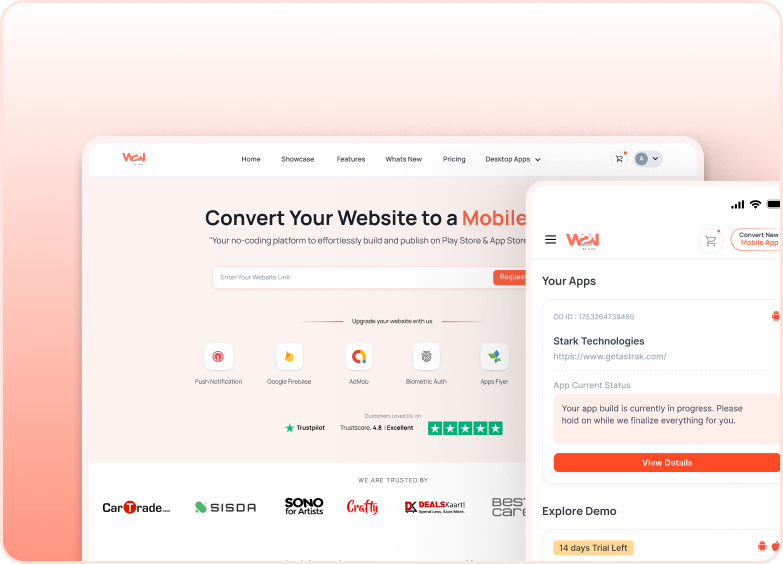Data Privacy in Mobile Apps: Challenges and Best Practices
Author:
Vanshika Choudhary
30 July, 2024
Mobile Apps provide an essential function in performing tasks such as banking, shopping, and tracking one’s health. At the same time, they gather crucial details, such as the user's location, payment data, and other personal identifiers. Effective safeguards against the loss and theft of such information are critical in protecting one’s identity and in preventing other forms of fraud and data misuse. For consumers, robust privacy policies ensure safeguards and control over the information they choose to share, as well as how it can be utilised. For companies, putting privacy first is sound business policy. It establishes confidence, builds loyalty, and protects the businesses from legal or reputational harm. In an age of constant breaches, privacy-centric and transparent apps still have a chance of making a growth. Protecting data privacy goes beyond a regulatory requirement; it is essential to any mobile app that seeks to be secure and ethical.

Primary Privacy Challenges
1. User Consent and Transparency
Users have always agreed to the sharing of personal data, sometimes “handing over” documents and pictures without fully understanding the action. User consent should be clear, unbundled, and hierarchical. It should be appropriately informed about what data is being collected, why, and in what way it will be utilised.
2. Data Sharing and Monetisation
Many third parties are servicing user information through apps for monetisation or for enhancing services. Privacy issues will arise if users are not given explicit instructions on the possible risks associated with the actions they take or the measures that are put in place to protect their privacy. Access to user data must be controlled in a properly outlined and ordered manner. Developers must explicitly and sufficiently explain the criteria that will be used to limit access to user data.
3. Compliance with International Laws
The lack of a universal privacy policy for apps used globally makes it challenging for mobile app developers. Compliance with other privacy regulatory frameworks, such as GDPR in the EU, CCPA in California, and many others, terms privacy credentials differently, sparking inconsistency and confusion for mobile app developers for users across the globe.
The Role of Authentication in Mobile Apps
Authentication safeguards a mobile app by ensuring only permitted users are able to access it, thus serving as the initial barrier to unauthenticated access. Privacy of the application increases with an effective authentication mechanism in place, gaining trust from the users.
Common Authentication Methods:
1. Password-Based Authentication: Requires the entry of a username and a password. Although this process has become second nature to users, it is highly insecure due to the use of poor and reused passwords.
2. Authentication Multi-Factor (MFA): It is a security measure that requires two or more verification processes, which improves security to lower the chances of unauthorised manipulation.
3. Biometric Verification: The processes of verifying people using fingerprint scans and face recognition are both secure and easy to use. Such mobile app verification techniques are increasingly being adopted as they are easier to use.
Best Practices for Data Privacy Challenges
1. Maintain Privacy by Designing Policies
Consider privacy issues at the strategic and tactical levels of mobile application development. This approach ensures that privacy is built into the mobile app's architecture and frameworks. This enables the developer to avoid and address data privacy issues that could lead to conflicts, thus fostering compliance as the mobile app matures.
2. Review and Compliance Assessment
Undertake regular checks for the app’s alignment with standard privacy practices and relevant legislation in the given context. Such practice reinforces the identification of risks such as weak and dangerous practices that, if unaddressed, can give rise to expensive legal or reputation problems. Prompt action on such risks enhances user confidence and trust.
3. Educate Users
Use comprehensive language focusing on what data will be collected and the purpose of the collection. Easily available guides, in-app manuals, and privacy policies contribute to good user empowerment. Users who are educated and empowered on the app will engage with the app more than those who are not.
4. Effective Authentication Procedures
Users’ sensitive information can be safeguarded with secure access protocols restricted to certain hierarchical levels, as well as with strong authentication procedures. The adoption of multi-factor authentication protocols (MFA), biometric technology, and encrypted communication channels enhances security measures. Effective safeguarding of documents minimises the risk of data breaches occurring.
With the rise in the use of mobile apps, protecting confidential information has become more important than ever. Mobile application developers can earn users’ trust by following industry benchmarks, employing strict data access protocols, and managing data ethically. Efforts to protect confidential information significantly improve the application’s download, endorsement, and utilisation rates. This, in return, increases engagement and trust.
Similar Blogs




